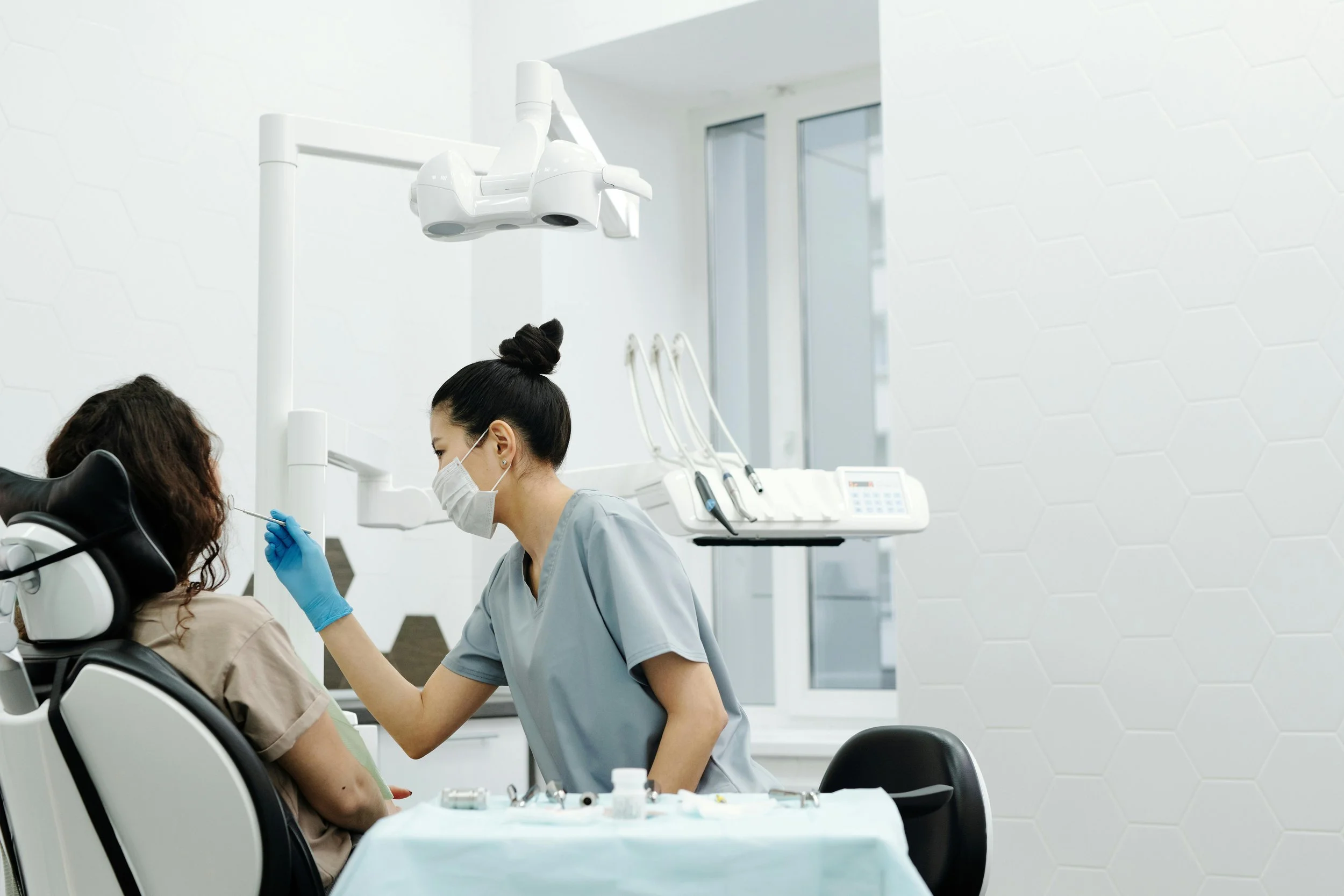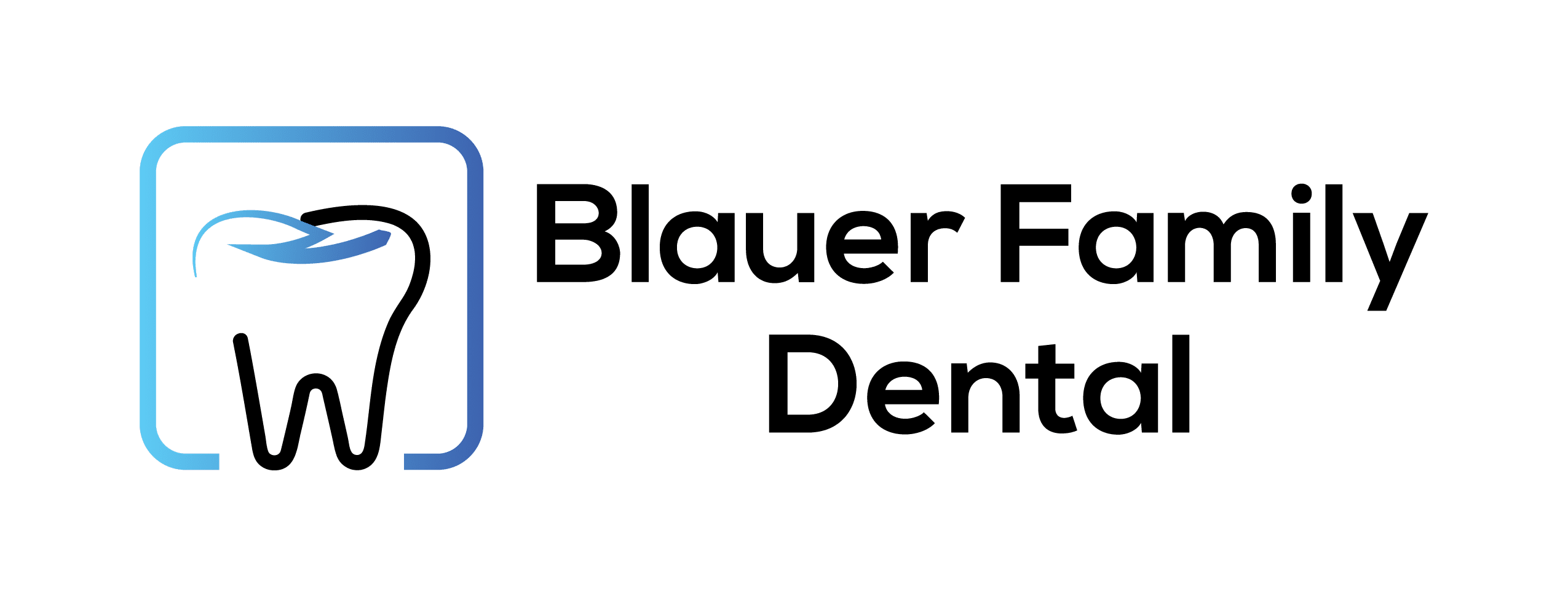A clean, healthy smile often begins with knowing exactly what is dental cleaning, how it helps, and when you might need one. Whether you’re due for your next appointment or just curious, understanding dental cleanings gives you a better foundation for caring for your mouth.
In this article we’ll define a dental cleaning, describe how often it’s recommended, signs that one might be needed, what dental cleanings prevent and what they cannot fix, and emphasize that only a dental appointment can determine with certainty what care you need.
What’s Covered Ahead
-
Definition of dental cleaning and what it involves
-
How often dental cleanings are generally recommended
-
Signs you might need a cleaning sooner
-
What dental cleanings can prevent
-
What dental cleanings cannot fix
-
Why only a dental exam can give you certainty
-
How to prepare and what to expect
What Is Dental Cleaning?
A dental cleaning, also called prophylaxis, is a professional procedure carried out by a dental hygienist or dentist to maintain oral health. It involves removing plaque (a sticky film of bacteria) and tartar (hardened plaque) from the surfaces of teeth, especially in areas that are hard to reach with brushing and flossing alone.
After the removal of these deposits, the teeth are polished, flossed, and may receive a fluoride treatment depending on your needs. Cleanings often include an examination of the gums, possibly X-rays, and a general check for any signs of dental concerns.
How Often Is It Recommended?

Most dental professionals recommend getting a dental cleaning every six months. This biannual schedule helps manage plaque buildup, monitor oral health, and catch any early signs of issues such as gum disease or decay.
However, the ideal frequency can vary. Some individuals may benefit from cleanings every three or four months, especially if they have a history of gum disease, wear orthodontic appliances, or have health conditions like diabetes. Others with excellent home care and minimal risk factors may be advised to space out cleanings further, based on their dentist’s evaluation.
Signs That You Might Need a Cleaning Sooner
While regular cleanings are typically scheduled in advance, there are signs that indicate you should book a visit sooner than expected:
-
Gums that bleed when brushing or flossing
-
Persistent bad breath that doesn’t improve with good hygiene
-
Noticeable tartar buildup along the gum line
-
Increased tooth sensitivity to hot, cold, or sweet foods
-
New stains or discoloration that brushing doesn’t remove
-
Gum recession or changes in the shape and color of your gums
These symptoms may indicate developing issues that require more immediate attention. A professional cleaning, or in some cases a different treatment, may be necessary to address them properly.
What Dental Cleanings Prevent
Dental cleanings play a vital role in preventive care. When performed consistently, they help minimize the risk of a wide range of oral health issues, many of which can become serious or expensive if left untreated. Below are key conditions that professional cleanings help prevent:
-
Tooth Decay. Plaque and tartar buildup are leading causes of cavities. Cleanings remove these substances from hard-to-reach areas, protecting enamel and helping prevent the breakdown of tooth structure.
-
Gum Disease. Gingivitis, the early stage of gum disease, is often reversible with regular cleanings. By removing plaque and tartar near the gumline, cleanings reduce inflammation and help prevent progression to periodontitis, which can result in bone loss and tooth loss.
-
Persistent Bad Breath (Halitosis). Bacteria trapped in plaque and tartar are common causes of chronic bad breath. Cleanings eliminate these odor-causing bacteria and freshen your breath more effectively than at-home brushing alone.
-
Stains and Surface Discoloration. Foods, beverages, and tobacco can stain your teeth over time. The polishing step in a dental cleaning removes many surface stains and helps restore a brighter smile.
-
Tooth Sensitivity. Plaque near the gumline can contribute to enamel erosion and gum recession, two main causes of sensitive teeth. Regular cleanings reduce this risk and may help prevent or lessen tooth sensitivity.
-
Tooth Loss. Advanced gum disease and severe decay are among the leading causes of tooth loss. Cleanings help manage these issues early, preserving the strength and stability of your teeth as you age.
-
Dental Emergencies. Many dental emergencies, such as infections, abscesses, or cracked teeth, develop gradually. Cleanings serve as an early intervention, helping catch and treat problems before they escalate into urgent care situations.
-
Complications with Dental Restorations. Crowns, bridges, implants, and fillings require a healthy oral environment. Regular cleanings prevent plaque accumulation around these areas, which helps prolong the lifespan of your dental work.
-
Wider Health Risks. Poor oral health has been linked to systemic conditions like heart disease, diabetes, and respiratory infections. Routine cleanings reduce inflammation and harmful bacteria in the mouth, contributing to better general health.
-
Oral Cancer and Soft Tissue Issues. During cleanings, dental professionals also check for abnormal changes in the soft tissues of the mouth. Early detection of oral cancer or infections is critical and often occurs during these preventive visits.
Routine dental cleanings are far more than a cosmetic service, they are an essential part of maintaining long-term oral and overall health.
What Dental Cleanings Cannot Fix
Although cleanings are an essential part of oral health, they are not a fix-all solution. Dental cleanings cannot:
-
Repair existing cavities or structural damage to teeth
-
Reverse bone loss from advanced gum disease
-
Treat infections deep within a tooth’s root or pulp
-
Permanently whiten internal discoloration
-
Replace missing teeth or restore gaps in your smile
For those types of concerns, other procedures, such as fillings, crowns, root canals, or implants, will be necessary. Cleanings may help prevent the need for those treatments but cannot substitute for them once issues are advanced.
Why Only a Dental Appointment Can Tell for Sure
Even if your teeth feel fine, and you maintain good brushing and flossing habits, the only way to know for certain if you need a dental cleaning is through a professional evaluation. Dentists use clinical tools and techniques to detect problems that may not yet cause symptoms. This includes probing for gum depth, taking X-rays, and performing a full oral exam.
A dental appointment gives your provider the opportunity to evaluate your specific risks and recommend the most appropriate treatment plan. What looks like a simple buildup of plaque might actually be early gum disease. Or what feels like sensitivity might be a cracked tooth or cavity that needs repair.
If you’re unsure what type of cleaning you need, or whether you need one at all, a visit to a qualified dentist near Belle Fourche, or in your area, is the only way to get a definitive answer.
What to Expect During a Cleaning
A standard dental cleaning typically lasts between 30 and 60 minutes. While the exact steps may vary slightly from office to office, here’s what usually happens:
-
Initial oral examination by the hygienist or dentist
-
Removal of plaque and tartar using manual tools or ultrasonic instruments
-
Polishing of tooth surfaces to smooth them and remove stains
-
Professional flossing to clean between teeth
-
Optional fluoride treatment or sealants depending on your oral health needs
Some appointments may include updated X-rays, especially if it’s been a year or more since your last set. These images help spot issues that aren’t visible to the naked eye.
How Often Cleanings Might Vary Case by Case
While twice-a-year dental cleanings are a widely recommended standard, the ideal schedule isn’t the same for everyone. Your personal oral health history, lifestyle habits, and medical conditions can influence how often you should see your dentist for cleanings.
For example, individuals who have previously been treated for gum disease often require more frequent visits to manage inflammation and prevent recurrence. The same goes for those who smoke or use tobacco products, as these habits increase the risk of gum disease, staining, and other oral complications.
People with dry mouth, a condition commonly caused by medications or certain health issues, are also more vulnerable to cavities due to reduced saliva, which normally helps neutralize acids and wash away food particles.
Likewise, patients with multiple crowns, bridges, or other restorations may need more frequent cleanings to ensure those dental materials remain in good condition and don’t harbor hidden plaque or bacteria.
A high-sugar or highly acidic diet can also increase decay risk and may require closer monitoring through more regular cleanings.
On the other hand, those with a low risk for dental issues might be able to extend the time between visits. However, this determination should always be made by your dental provider based on a full examination and long-term health monitoring.
The Bottom Line

Understanding what is dental cleaning gives you a clear view of its value in preventive care. Dental cleanings protect your teeth and gums from disease and decay, help keep your breath fresh, and make your smile look brighter. While they can’t fix every dental issue, they are one of the most effective tools for maintaining oral health.
If you’re unsure whether you’re due for a cleaning, your best move is to schedule a visit with a trusted provider. A qualified exam will tell you if a routine cleaning is right for you, or if other steps are needed to support your smile.
Further Reading
-
How Regularly Should You Get Your Teeth Cleaned – Healthline https://www.healthline.com/health/dental-and-oral-health/how-often-should-you-get-your-teeth-cleaned
-
How Dental Cleanings Work – Cleveland Clinic https://my.clevelandclinic.org/health/treatments/11187-dental-check-up
-
Teeth Cleaning: What To Expect – Verywell Health https://www.health.com/teeth-cleaning-8663326
